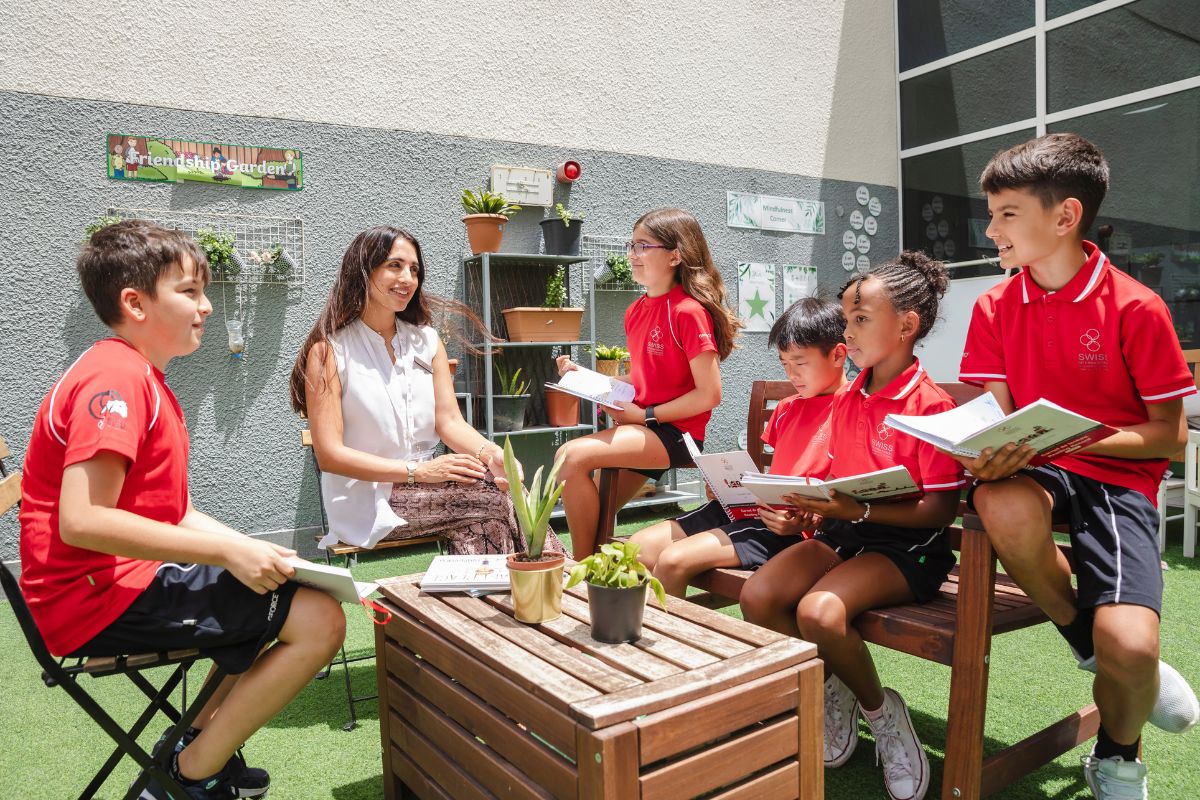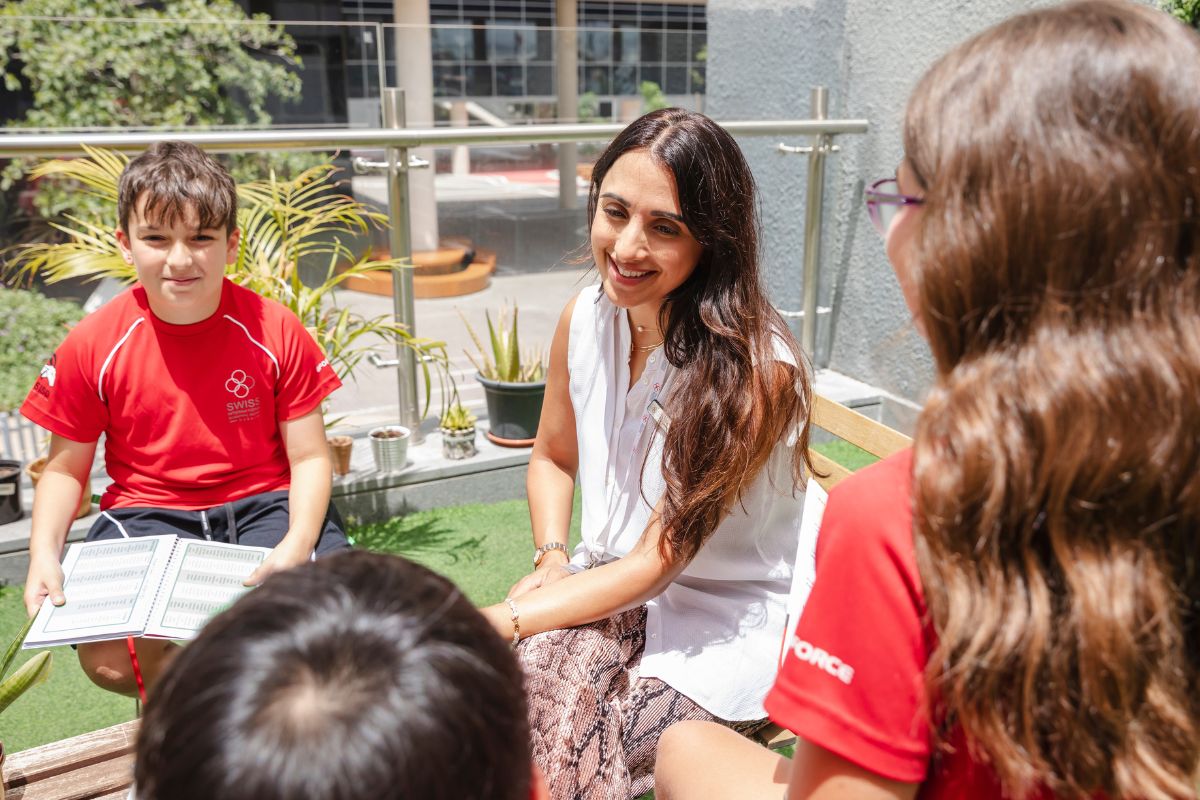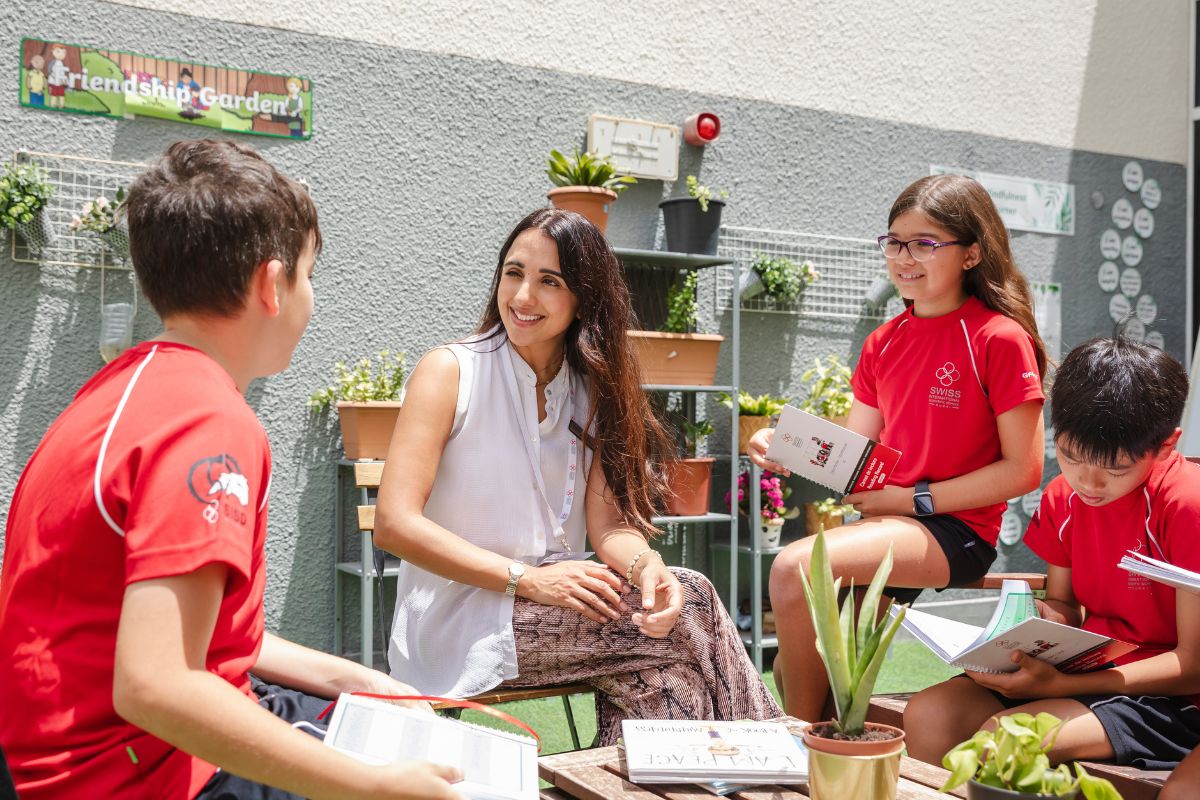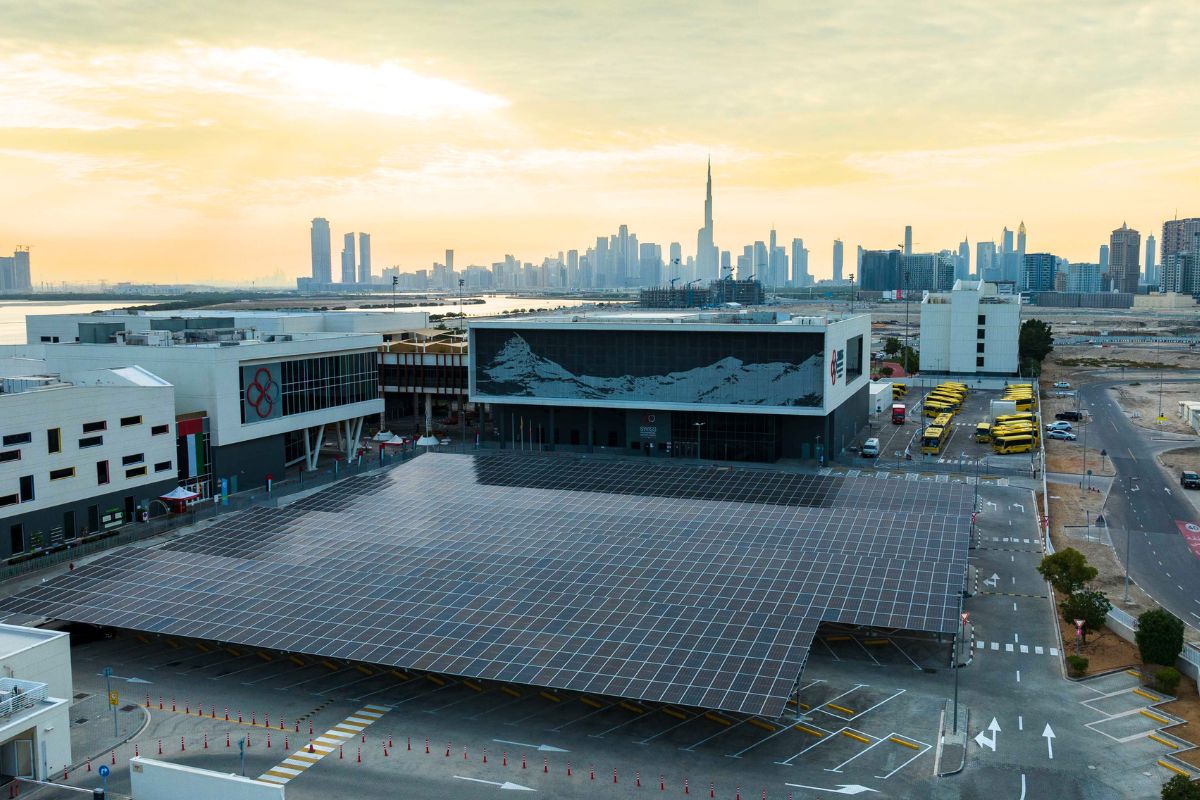
This school in Dubai is leading the way in creating awareness on the environment
Sustainability and environmental awareness are commonplace at the Swiss International School, from including sneakers made from recycled plastic on the uniform list, to encouraging pupils to consider waste in fashion with competitions like Junk Kouture.
And back in December 2024, the school installed a ground-breaking solar panel-based energy system on the roof of its car parking area, which resulted in the school be awarded the proud winner of ‘Solar Project of the Year’ at the Middle East Solar Industry Association annual awards.
Clearly, students at the school are well versed in environmental matters and therefore, we meet the Assistant Head of Primary Gullrukh Amal Rafiq to find out how the school is engaging its students in such matters.
What sparked your personal interest in environmental issues, and how did it lead you to become an expert at Swiss International School Dubai?
I have always enjoyed spending time in nature and reaping the health benefits that come with the natural environment. The sounds, smells, sights, and satisfaction of nurturing plants and observing the diversity of life that is attracted to a space. To ensure the protection of what I and billions of others need and love, I believe it is crucial to better understand how to protect and preserve our environment.
Can you share some of the unique ways Swiss International School Dubai incorporates environmental education into its curriculum for young students?
Our curriculum is framed by six transdisciplinary themes; who we are, where we are in place and time, how we express ourselves, how the world works, how we organise ourselves and sharing the planet. These themes and the integration of the sustainable development goals in all our project tasks ensure environmental knowledge and human impact is at the forefront of our learning and teaching.
You might also like: How parents can foster early reading skills at home
What are some hands-on activities or projects that have successfully engaged children in learning about the environment?
Fieldtrips, workshops, interactive displays and projects such as the STEAM fair have ensured that students stay engaged with relevant learning in exciting ways. Students have visited EXPO to take part in workshops related to bees, robotics, and project management. We have business fair projects where students create sustainably minded and ethical business plan models and sell to their peers during a business fair.
TEDX inspired presentations during assembly, opportunities to plan events such as Green Learning Walks around the school and fundraisers for animal charities. We also like to engage our parent community by asking for workshop leaders, environment creators, and storytellers. Staying connected with the local and global key organisations such as UNICEF, WWF, Emirates Nature and Dubai Cares ensures we are able to draw from experts in the field and provide opportunities both in and outside of school.
As part of the TASS green school association, what specific initiatives or programmes has Swiss International School Dubai implemented to promote environmental awareness among students?
Through TASS we have gained a partnership with affiliate schools both in the region and globally to ensure we are a part of a network of schools with the same values. The leading factors for consideration are school buses, uniforms, canteen food, school building and education for sustainability.
Being a part of this network of principals and sustainability leaders allows us to be informed of practical solutions and share best practice. I have had the opportunity to welcome visitors from Qatar and Russia to showcase our school campus and lead workshops for other educators on increasing student engagement and leadership.
Our TASS ambassador study body have been invited to the Sustainable School Food Summit at COP28 to sample low carbon dishes. As a result, they have proposed Meatless Mondays to ensure we are reducing our carbon footprint through food choices.
How can parents reinforce environmental education at home to complement what their children learn at school?
The school is very proactive at sharing reading materials, projects, environment engagement days and workshops both in school and online for parents. The key is to engage in open conversation and build on awareness. Noticing nature and ensuring respect is instilled for the environment around us. Sharing personal stories from their own childhood of their play and experiences in nature can help to build a strong connection. In addition, being in nature, creating bee and bird baths, caring for plants and reconsidering consumer choices. Refusing single use plastics and learning about the lifecycle of products. These are a few ways parents can help reinforce the learning at home.
Have you seen any particularly inspiring student-led environmental projects or campaigns at the school? Could you share a few examples?
Meatless Mondays; Plastic Free SISD – slogan developed by students ; Green Learning Walks (Students checking classrooms with a success criteria to give feedback to each class)
What are some common challenges you face when trying to engage children in environmental issues, and how do you overcome them?
One common challenge is environmental depression, where students feel overwhelmed or hopeless about the state of the environment. To overcome this, we focus on positive, action-oriented education that empowers students to make a difference. We highlight success stories, involve them in hands-on activities, and emphasise the impact of their individual actions. By fostering a sense of agency and optimism, we help students feel motivated and capable of contributing to environmental solutions.
You might also like: UAE leadership reaffirms commitment to education
How do you measure the success and impact of environmental programmes on the students’ awareness and behaviour?
We measure the success and impact of our environmental programs through various methods. Surveys and questionnaires help us gauge changes in students’ knowledge and attitudes. Participation rates in activities and initiatives provide quantitative data. Feedback from teachers and parents offers qualitative insights into behavioural changes. These methods collectively help us assess the effectiveness of our programs and guide future improvements.
What are your future goals for the environmental education programme at Swiss International School Dubai, and how do you plan to achieve them?
Creating an edible education programme that utilises our organic garden and helps students develop food preparation skills. Food waste, nutrition and preparation are areas our students have expressed an interest in to further integrate. To further build on the educational programme we will be continuing to work with the partnerships we have established to ensure wider school opportunities are always available for our students.
What advice would you give to other schools that are looking to become more environmentally friendly and educate their students about environmental issues?
Involve students, community members and allow time for key educators to drive the agenda. If the enthusiasm is prevalent the action will follow.
What inspires and motivates you in your work as a green expert, especially in the context of working with young children?
The opportunity to instil a sense of responsibility and empowerment in young minds, helping them understand that their actions can have a positive impact on the planet, drives my passion for environmental education. Knowing that I am contributing to the development of environmentally conscious future leaders keeps me motivated every day.
You might also like: Dubai school buses can now feature advertisements
How do you adapt your environmental education strategies to keep up with the rapidly changing climate and environmental landscape?
To adapt our environmental education strategies to the rapidly changing climate and environmental landscape, we continuously update our curriculum to reflect the latest scientific findings and environmental issues. We incorporate current events and emerging trends into lessons to ensure relevance and urgency. Engaging with environmental experts and organisations helps us stay informed and provide accurate information.
We also emphasise critical thinking and problem-solving skills, encouraging students to develop innovative solutions to new challenges. By fostering a flexible and responsive approach, we ensure our students are prepared to understand and address the evolving environmental landscape.
Can you share some simple, everyday eco-friendly tips that families can easily adopt to contribute to environmental sustainability?
Families can easily contribute to environmental sustainability with a few simple practices. Reduce waste by reusing items and choosing products with minimal packaging. Conserve water by fixing leaks and using water-saving fixtures. Save energy by switching to efficient light bulbs and unplugging electronics when not in use. Use reusable bags and containers to cut down on single-use plastics. Support local and sustainable products to reduce transportation emissions.
Are there any success stories or significant achievements from the students or the school’s environmental initiatives that you’re particularly proud of?
One notable success story is our students’ campaign to eliminate single-use cutlery in the canteen. They organised awareness drives, presented to the school administration, and successfully advocated for the switch to reusable cutlery, significantly reducing our plastic waste. Additionally, we have become a sticker-free and glitter-free school. Students initiated this movement to minimise microplastic pollution, and the entire school community embraced the change. These achievements reflect the proactive spirit and dedication of our students to making a positive environmental impact.
Follow Yalla Dubai for all the latest news on education




 by
by